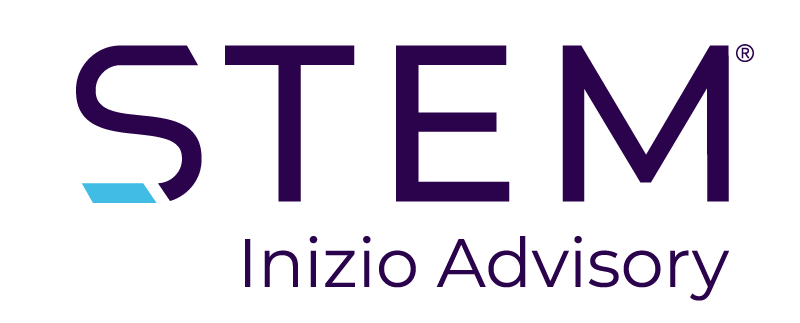Strengthening Internal Alignment and Confidence to Drive First-Line (1L) Oncology Advocacy
The challenge
A global pharmaceutical company was preparing its teams for the introduction of a novel oncology therapy aimed at becoming the preferred first-line (1L) treatment option. The primary focus was ensuring the team could confidently engage healthcare professionals (HCPs) in treatment discussions and fully understand their advocacy role. Despite promising clinical evidence, healthcare professionals (HCPs) remained hesitant due to perceived safety concerns, limited survival data, and uncertainty around patient management.
We were approached to evaluate internal alignment between global, regional, and local medical teams. We specifically assessed whether Medical Science Liaison (MSL) teams clearly understood their evolving role, moving beyond passive scientific information sharing to actively influencing HCP perceptions and confidently driving advocacy for adoption in this setting.
Our assessment revealed gaps in consistency and confidence. While global leaders strongly supported a robust strategy, field teams varied significantly in their readiness to engage HCPs. Many MSLs continued to prioritize insight collection over advocacy or partnership building. Common challenges included limited clinical experience, incomplete influencing and competitive communication training, and inconsistent confidence when addressing safety concerns or pivoting back to core strategic messages.
Our solution
To address these challenges, we conducted structured diagnostics across global, regional, and local teams, evaluating internal alignment, identifying specific gaps, and pinpointing root causes of misalignment and skill deficits. We directly observed MSL engagements with HCPs to evaluate how effectively the strategy was being implemented and identify real-world gaps and opportunities.
Our initial step was clarifying the MSLs’ role – as scientific thought leaders responsible for guiding conversations on trial design, molecular subtypes, safety, and unmet needs. This equipped MSLs to engage HCPs confidently in high-quality scientific exchange.
Training focused on reinforcing belief in the agreed narrative and building confidence in its use in field discussions. MSLs were encouraged to go beyond insight collection, leaning into their role as influencers of clinical thought. Best-practice examples showed how strong engagements build on a narrative by aligning with the unmet patient need and creating opportunities to challenge current perspectives.
A key part of the solution involved spotlighting the concept of advocacy and clarifying expectations across teams with questions around whether all affiliates had a shared understanding of what advocacy means and the steps needed to achieve it. This helped shift the focus toward long-term partnership-building with HCPs rather than short-term information exchange.
To ensure consistency, a global steering committee was created with representation from key launch markets – this team co-created strategy, messaging, and planning documents alongside global leadership. The approach moved from top-down to collaborative, giving affiliates a sense of ownership. Localized action plans were built around short, medium, and long-term goals, all integrated into a shared strategy that allowed local nuance.
The results
Field teams began to engage more confidently and consistently in 1L oncology conversations. There was greater clarity around how to challenge HCPs when appropriate and how to pivot discussions back to the agreed narrative, even when talking about other trials. MSLs became more proactive in linking data to broader patient benefits, instead of treating it in isolation.
In several markets, teams demonstrated best-practice examples in safety discussions and advocacy building, while early gaps in confidence improved notably with increased clarity. By investing in clearer messaging, capability-building, and co-created strategy, the team moved toward a more unified, credible, and engaged presence in the field. With a strong foundation, the next phase ensured that MSLs were fully equipped to drive deeper engagement, challenge confidently, and support the broader goal of evolving first-line treatment.
However, we identified ongoing needs for sustained reinforcement, particularly around embedding long-term advocacy capabilities and further enhancing communication skills. To maintain these improvements, we recommended continued attention to internal alignment.
Through structured assessment and targeted capability-building, we successfully equipped teams to engage with and influence the first-line oncology treatment landscape confidently.
Continued collaboration with medical teams and MSLs will be critical to build on these gains – driving consistent, credible engagement that supports both field effectiveness and broader medical strategy.
Contact us and find out how we can help you accelerate your brand performance.

Related reading.
Jump to a slide with the slide dots.
Empowering MSLs to deliver strategic value through deeper insights
Experts at STEM collaborated closely with their client to elevate the role and impact of their MSLs.
Read moreConnecting solutions to help a client address a threat to the brand and improve its performance
Find out how we collaborated with Research Partnership using integrated insights to help a client address a threat to their brand in a key market.
Read moreFactors affecting the adoption of brand
Cross functional interviews and sales team field visit observations reveals which campaign elements were most impactful with HCPs.
Read more